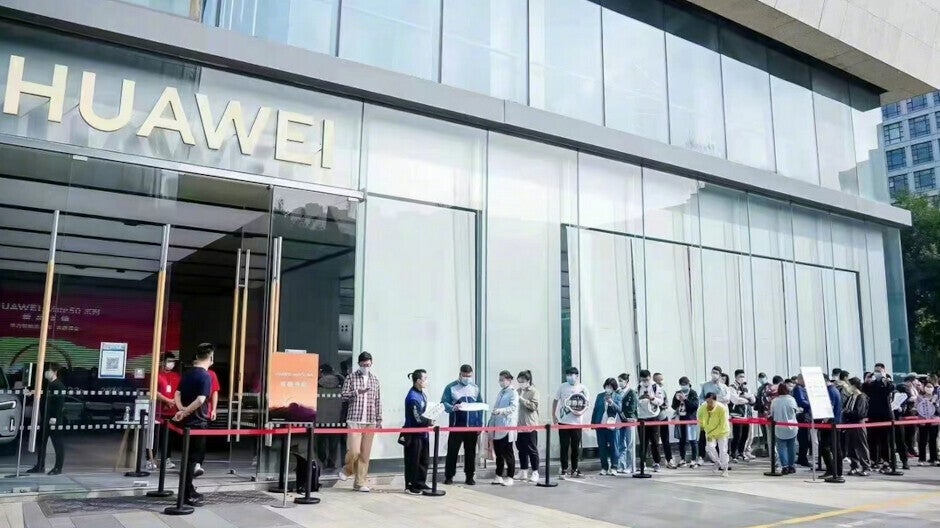How Huawei plans to function around the U.S. chip boycott
How Huawei plans to function around the U.S. chip boycott

In 2020, the U.S. rolled out an improvement to a product decide to forestall foundries that utilization U.S. innovation to fabricate chips from delivery state of the art semiconductors to Huawei. At that point, Huawei was the second biggest client of TSMC, the world's driving foundry, behind just Apple. This, and the limitations put on Huawei by the U.S. the earlier year, assisted with causing all kinds of problems for the Chinese producer thought about a security danger in the U.S.
To say that Huawei just played dead would be inaccurate. As a matter of fact, the organization found the courage to dig profound inside and foster its own HarmonyOS working framework, presently on rendition 3.0. Furthermore, it has had the option to source quick, energy-productive 4nm Snapdragon 8+ Gen 1 chips despite the fact that they are changed to forestall use with 5G organizations. No more Google Versatile Administrations? Huawei Portable Administrations dominated and is furnishing clients with an incredible biological system.
Huawei, prohibited from getting state of the art semiconductors, hopes to back a startup foundry to dodge the boycott
Also, the long queues and weighty interest as of late seen for the Huawei Mate 50 series were evidence that Huawei ought not be counted out. Presently comes word, as per Bloomberg, that Huawei is getting behind a juvenile chip producer in Shenzhen that has had the option to arrange chip-production gear, even from unfamiliar nations, determined to construct a semiconductor producing plant referred to in the exchange as a "fab," another way to say "manufacture office."
Those in the loop say that the organization, Pengxinwei IC Assembling Co., isn't just shown to a previous Huawei chief however will develop its plant close to Huawei's base camp in light of public filings and satellite photographs. Those in the loop say that Huawei anticipates purchasing as much as 100 percent of the foundry's result. The hardware requested by the organization to construct semiconductors should show up during the principal half of the following year; the organization is known as PXW.
One significant piece of hardware that PXW could experience difficulty getting is the EUV (Outrageous Bright) lithography machine. Made exclusively by Dutch firm ASML, these machines are generally the size of a transport and are utilized to scratch very slender circuity (considerably less than the width of a human hair) on a wafer which is utilized to assist with putting semiconductors on a chip. Since there are billions of semiconductors inside the most remarkable semiconductors (for instance, Apple's A16 Bionic has almost 16 billion semiconductors inside it) you can envision how flimsy these plans should be.
As significant as the EUV lithography machines are to the development of state of the art chips, the Dutch government won't permit a Chinese firm to buy one of these $200 million behemoths. China's biggest foundry, SMIC, says it has had the option to create fundamental 7nm chips (TSMC and Samsung Foundry are both efficiently manufacturing all the more impressive and energy-proficient 3nm chips) without possessing an EVU lithography machine yet getting underneath 7nm will be difficult to manage without it.
PXW is presently on the radar of the U.S Business Division's Department of Industry and Security, which screens exchange limitations. Talking with Bloomberg News, the organization says that it knows about PXW and the "charges of associations with Huawei. BIS is continually keeping watch for endeavors to dodge trade controls, remembering those connected with parties for the Element Rundown like Huawei, and utilizes open-source, exclusive, and arranged data to validate and afterward, when fitting, apply our managerial or criminal policing great as administrative apparatuses to address infringement."
While the Bloomberg report says that it isn't evident whether the chip startup's arrangements will disregard any of the U.S. international restrictions against Huawei, the organization will experience difficulty obtaining all of the hardware expected to assemble state of the art chips for the maker. Huawei, similar to Apple, plans its own chips and in light of the fact that it is fabless (it doesn't possess a creation office) it depends on foundries to make its Kirin chips.

PXW is no danger to TSMC or Samsung, essentially not currently
PXW says that it desires to begin creation in 2025 with 28nm chips, a few ages behind the state of the art 2nm chips that will be delivered that year by TSMC and Samsung. The lower the interaction hub, the more modest the semiconductors utilized with a chip. The more modest the semiconductors, the higher the semiconductor count utilized and that is significant. The higher the quantity of semiconductors found inside a semiconductor, the more impressive and energy-productive it is. Sources show that PXW is looking to ultimately deliver 14nm and 7nm chips like SMIC.
While PXW couldn't be a danger to TSMC or Samsung Foundry at the present time, the U.S. is taking a gander at putting limitations on China's admittance to chip-production innovation. So rather than influencing a solitary organization like Huawei, the U.S. would prefer to put limitations on the whole country.
Jake Sullivan, the Public safety Counselor of the US said the month before, "We recently kept a 'sliding scale' approach that said we really want to remain several ages ahead. That isn't the essential climate we are in today. Given the fundamental idea of specific innovations, for example, high level rationale and memory chips, we should keep up with as enormous of a lead as could really be expected."
© 2023 YouMobile Inc. All rights reserved






